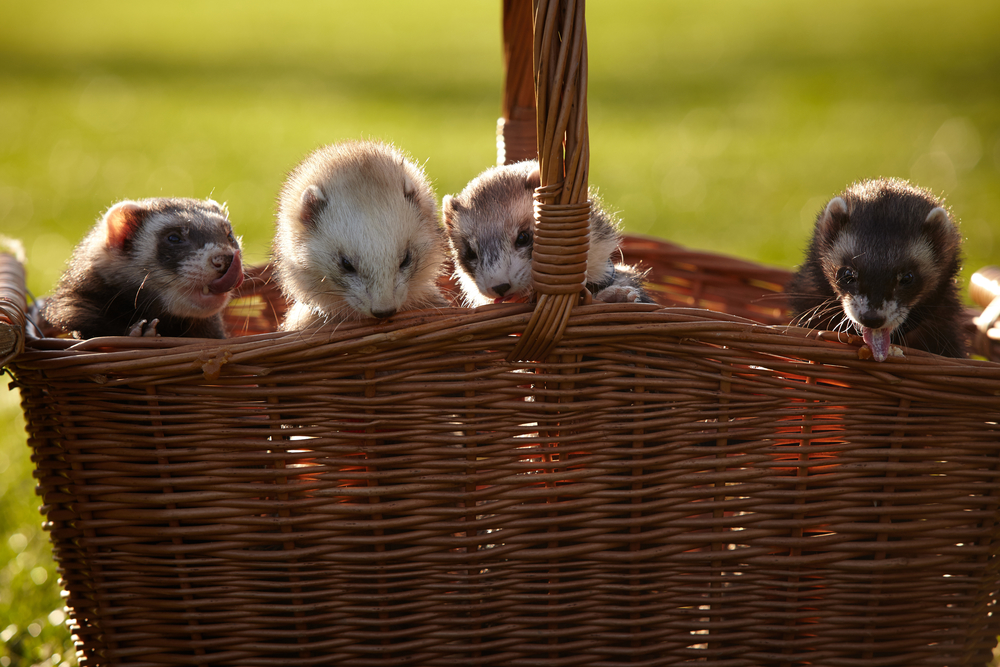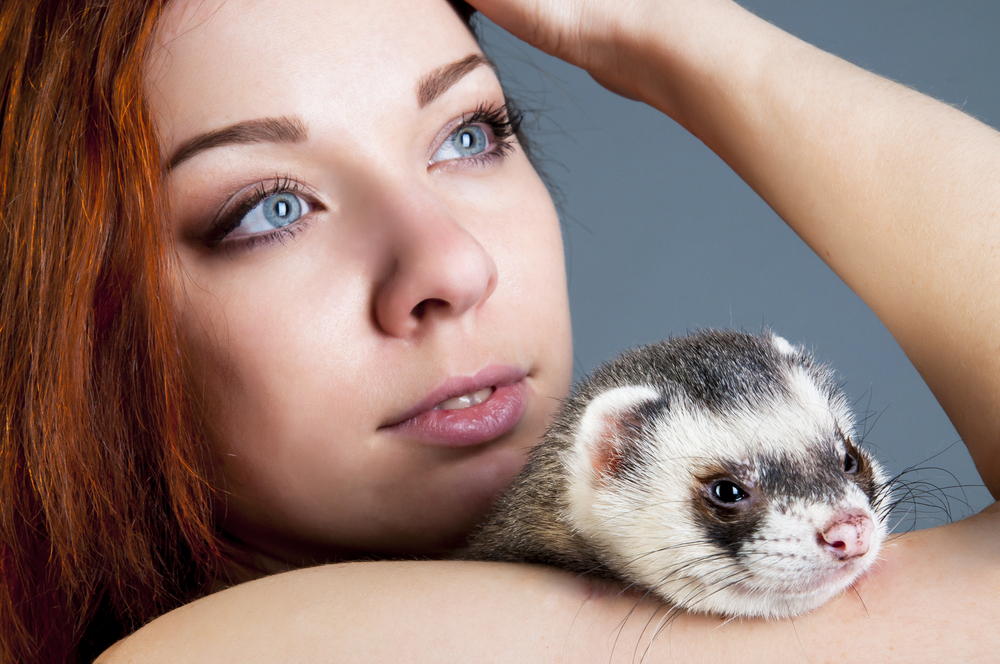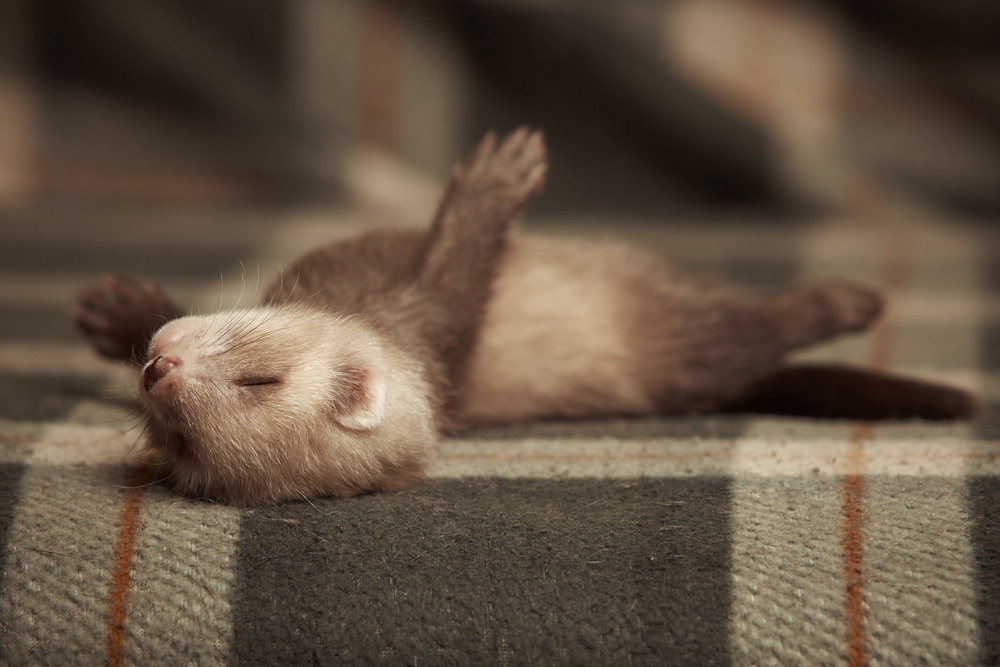Female ferrets, called jills, generally need special care and a modified diet if they will be mated. Like other mammals, pregnancy and the subsequent nurturing of infants takes quite a toll on the female ferret. It is essential that jills receive proper, adequate nutrition during the mating season and immediately following the birth of a litter, so that they can fully recuperate and care for their young.
Prior to breeding, jills should be fed a diet rich in animal proteins and healthy fats. Many experts believe that a raw diet is the optimal way to achieve this balance, although one should always check with a reputable veterinarian before starting any ferret on a raw food diet. Uncooked pieces of chicken, lamb, minced beef, rabbit, game birds, livers and heart are excellent nutritional options for a jill about to be mated. Raw bones are also a nice treat for a mature jill, as they provide calcium and essential nutrients.
During gestation, post-partum and weaning, a jill’s nutritional needs are nearly the same, although she will require larger quantities of food to keep up her strength. The raw food diet is a good option, and can be supplemented with goat’s milk or lactose free milk for extra calcium. Vitamin supplements, a small amount of cod liver or fish oil every other day, and one egg a week are all recommended additions to a pregnant or post-partum jill’s diet. The extra nutrients in these items will help the jill maintain her vitality, and allow her to effectively nurse her young following delivery.








